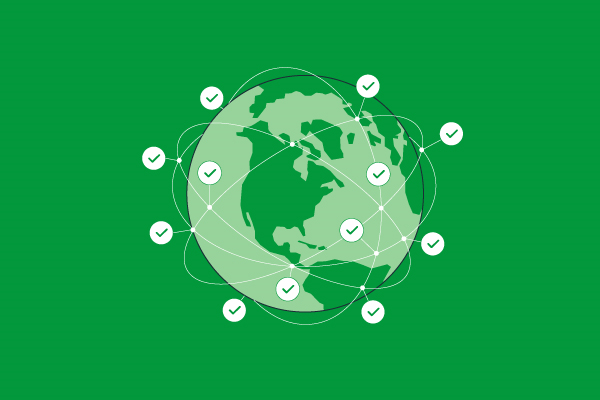As we enter into an era of digitalization, financial transactions have become much more advanced and no longer require the use of physical cash only. Businesses now give you a multitude of new methods and service options to choose on how you might want to pay for any purchase you have made, with the most popular being credit or debit cards. Now it is extremely convenient to just swipe, dip or tap your credit or debit cards allowing money to be transferred from the customer’s bank account and into the business or ‘merchant’ account, all within a matter of few seconds. However, in reality, these credit or debit transactions go through a lot more complex back-end payment processes.
Payment Processing
Payment processing can simply be defined as the process by which businesses complete and secure credit card and debit card transactions so that customers can make a purchase without the need for cash or cheques, and businesses can close a sale. Payment processing services consist of various steps and have several participants involved, including:
· Customers
· The business or merchant
· A payment processor
· A payment gateway
· A bank, credit or debit firm
· Business or merchant account


Payment Processors
Payment processors are an integral part of the worldwide financial chain. They are companies that serve as mediators between the customers, the merchants, and the financial organizations that are processing the transactions. They manage the backend logistics of card transactions by validating all the relevant information and authorizing the disbursement of funds to the merchant as well as to the issuing bank once a sale has been finalized. The network of payment processors synchronizes the flow of data between all parties. It checks if the customer account has sufficient funds, if there are no limits to the account, and if the card is valid and finally then transfers the funds to the seller’s account. These transactions could either be online payments or in-person payments.
How Does Payment Processing Work?
Before we understand the intricacies of how payment processing works, let us first familiarize ourselves with some of the systems and services that are essential for successful processing of a payment:
Point of Purchase – It can be described as the initiation of the purchase by a customer with a merchant by providing a method of payment
Payment Gateway – These are tools or technology that relay the customer’s sensitive payment information to the payment processor, securely connecting this information from a customer’s bank to the merchant’s bank. Payment gateways effectively communicate the approval or decline of the transaction, whereas payment processors essentially enable the whole transaction. Payment gateway services can also be offered through payment gateway providers.
Issuing Bank – The financial organization that is associated with the customer’s credit card
Merchant Account – The bank account of the business which enables it to accept debit and credit cards as well as other digital payments.
Payment processing services involve the authorization, funding, and settlement of a transaction. The whole process can be broken down into steps from the moment a purchase is made and the payment is started using a credit or debit card at the point of sale (POS):
1. The customer provides the merchant with their credit or debit card information at a POS terminal in a store. These details are submitted through a payment gateway
2. The payment gateway sends this information to a payment processor, which in turn starts the transaction by sending all of this information to the card association, such as Mastercard or Visa, connected to the issuing bank for approval
3. The issuing bank verifies all the details, then communicates to the payment processor if the payment request has been approved or declined
4. If the request is approved, the payment processor informs the issuing bank to send funds to the merchant’s bank. The issuing bank authorizes this transaction and a transfer of funds from the customer’s bank is initiated
5. The merchant receives these funds successfully and now has access to them
6. Once all this is done, the merchant communicates the success of the transaction to the customer and completes the sale
The whole process occurs in a highly secure digital environment. This process is similar for online payments as well with the only difference being that the customer initiates the order by adding their desired items to the merchant shopping cart and the merchant then submits the details of this order by sending the cart and the details of the customer to the payment processor. Customers are then required to fill their payment information on a payment service provider secure form. After the verification process, the transfer of funds in initiated.
Types Of Payments That Can Be Processed
There are a number of payment methods that can be easily processed using the aforementioned technology:
· Debit or credit cards
· E-wallets
· Bank transfers
· Electronic cheques
· Local payment methods
Costs Incurred
The use of payment processing networks does have its own set of costs for merchants as they involve several institutions including card issuers, networks, and payment processors. The charges for each transaction are taken from the merchant’s sale by the payment processor. The total fee, also known as merchant discount rate, is usually 2% to 3% of the purchase. This includes fees such as:
· Interchange fee
· Assessment fee
· Processor fee
Choosing The Best Payment Processor
With a wide variety to choose from, your ultimate decision to choose the best payment processor will depend upon a number of factors. These could include:
Pricing structure
The most effective pricing structure for your business in terms of payment processors depends upon your sales volume and the industry you work in
Location of business
Is it an online venture, a physical store, or a business on the road? Some payment processors are customized and tweaked to work best in certain businesses
Your Industry
Payment processing services are often not available for certain industries where the financial risks involved are far greater than the benefits as well as due to regulatory limitations.
It is thus wise to consider your options carefully but in the end, this will surely be worthwhile as payment processors offer numerous advantages for a business that wants to guarantee growth and customer satisfaction.
Payment processor solutions by Oceanpayment offer streamlined management to optimize transactions, and enable your business to incorporate faster payment solutions and variable payment options to customers. Oceanpayment works especially well for recurring payments, and will be the ideal payment partner for your business.
To integrate seamless and smooth payment solutions for your business, or to find out more details about Oceanpayment log on to www.oceanpayment.com.






Comments are closed.